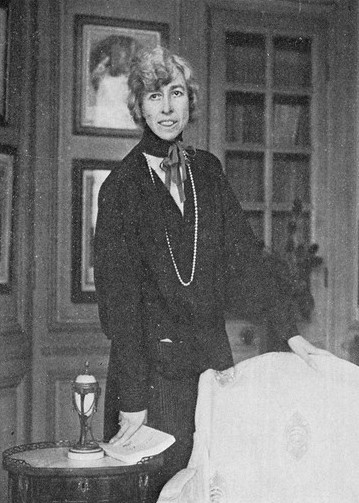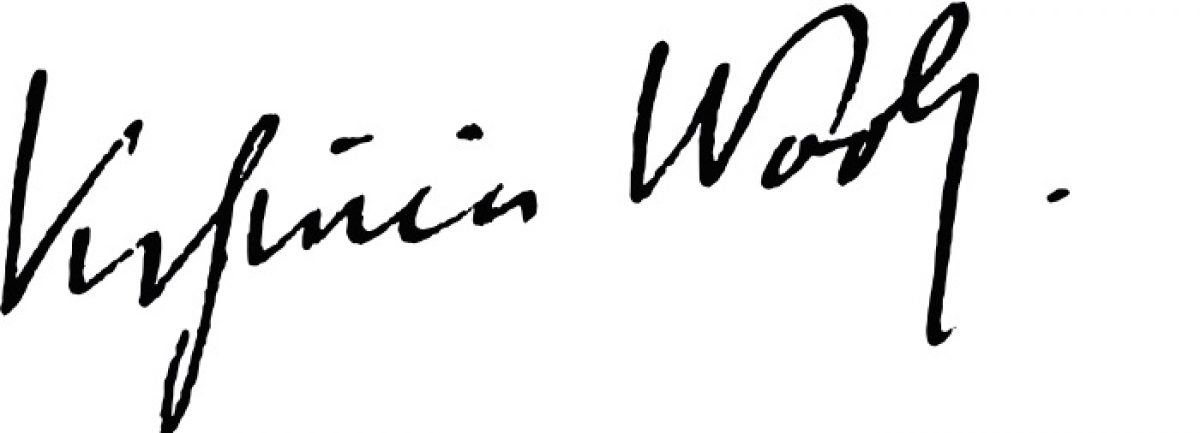Rodmell

On Monday 8 August 1927 VW writes an interesting paragraph or so on three days just spent in Dieppe at Ethel Sands’ and Nan Hudson’s chateau – Vanessa and Duncan had been commissioned to decorate the loggia and, as an impending visit was not previously mentioned, the trip (and without Leonard, who saw her off on the boat train from Victoria on 27th July) may have been a spontaneous decision perhaps at the insistence of her sister. Sands, I should say, is a fairly constant presence in Woolf’s social sphere at that time, and is another one of those uncommon, very moneyed American women of the time who more than just ‘dabbled’ in their own art and were more than generous in their patronage of other artists. It is rather ironic that Sands and Hudson could only satisfy their own personal freedoms in the ‘old world’ beyond the shores of the ‘new’ – that self-styled ‘land of the free’.
On 10 August, Woolf reveals a pair of odd irritations. Firstly, Forster’s unhappiness (based upon a draft) of an article she was doing on him. She seems to find his concerns unreasonable and out of character, and asks of herself the rhetorical question whether she would be so easily offended. And thinks not. [p.152] (Personally, I am not so sure of that: her respect for Forster was such that she had in the past actively sought his approval of her work, and which as I remember she seemed always to have got – and I imagine she would have been mortified if she discerned anything other!) And, then, there is this peculiar reference back to an incident whilst visiting the Morrell’s just before leaving London, and the “amorous” advances of Philip that she mischievously ponders indulging to Vita [p.152 & footnote pp152-153].
Tuesday, 20 September: Exploring what remained of a 16th century moated house with Vita and the death of Lytton’s twenty-eight year old latest romance, Philip Ritchie, makes Woolf feel like an “elderly haggard”, and leads her to thinking again of one day passing review of her friends in literary form. She says:
[…] how to do it. Vita should be Orlando, a young nobleman. There should be Lytton, & it should be truthful but fantastic. Roger. Duncan. Clive. Adrian. Their lives should be related. […] How many little stories come into my head! For instance: Ethel Sands not looking at her letters. What this implies. […] She did not open her letters.
[p.157]
In just this one paragraph: Vita is already Orlando! Years later she will indeed write a biography of Roger (Roger Fry – A Biography, Hogarth, 1940 – here at the Internet Archive), but nothing ‘fantastical’ rather formal – being perhaps the reason that the writing of it in the last years of her life so tormented her, and that it was, in her mind, a failure. One can imagine it is not the biography that she would have been contemplating in this summer of 1927. And, then, there is this observation of Ethel Sands not opening her letters which will form the basis of the short story “The Lady in the Looking Glass – A Reflection”. Another wonderful example of Woolf’s creative processes working in real time.
In the first days of October, Virginia passes review on the work and pleasures of the summer in Rodmell, and on Wednesday 5 October tentatively makes a schedule for the work that lay before her, and one in particular.
And instantly the usual exciting devices enter my mind: a biography beginning in the year 1500 and continuing to the present day, called Orlando: Vita; only with a change about from one sex to another. I think, for a treat, I shall let myself dash this in for a week, while [text ends]
[p.161]
We know of course this radical idea was to to be realized! And the abrupt end leaves us wondering: “while” what?
The editor notes that the Woolfs returned to London on Thursday 6 October 1927
London
On Saturday 22 October, Virginia probably herself no longer remembers her interrupted train of thought, but is indeed prompted to quote herself as she admonishes herself (for her obsession):
“I shall let myself dash this in for a week” – I have done nothing, nothing, nothing else for a fortnight […launched with] passion upon Orlando: A Biography. It is to be a small book and written by Christmas
[p.161]
But she is delighted with where she is going, and admits that she quickly gave up on her schedule and abandoned herself “to the pure delight of this farce: which I enjoy as much as I’ve ever enjoyed anything” [p.162] But at the same time is very well aware of the balance she must maintain between “truth and fantasy”, after all, she says: “It is based on Vita, Violet Trefusis, Lord Lascelles, Knole &c.” [p.162] Do follow the links and get some of the dish that fed Virginia’s rapacious literary appetite!
Diary entries through November and most of December are few. ‘Old Bloomsbury’ has formed after a fashion and meet informally on Sunday evenings at Vanessa’s. Visits from Vita and Harold are always ripe with gossip. Harold is made First Secretary at the British embassy in Berlin. Vita has a new love installed in their garden house (Mary Campbell). Clive’s house is decked with every comfort and convenience. Mrs. H.G. Wells dies, and Lady Beaverbrook – neither invoking too much sympathy, rather meanderings that end in parody.
Tuesday 20 December: As Christmas approaches, frosty cold weather has set in. Some festive evenings with Vanessa and her children; prompting Virginia to state that she no longer bemoans not having children: “I don’t like the physicalness of having children of one’s own.” And further: “…perhaps I have killed the feeling instinctively; as perhaps nature does.” [p.167]
VW is in the midst of the third chapter of Orlando, and says she has given up on finishing it by February – wasn’t it to be by Christmas ? (see above 22 October) She contemplates Orlando revealing herself and women’s love, meeting Dr. Johnson and quoteing from Vita’s ancestor Charles Sackville, Earl of Dorset, poem “To all you Ladies”. (Which she in the end doesn’t, but out of interest here it is in all its glory at Bartleby)
Thursday 22 December: After a party at the Keyneses Woolf is reflective of her propensity of late to tend towards the superficial, the cliche ridden – with middle age she must shield herself from impending traits of egotistical behavior, of arrogance, of fishing for compliments. She compares herself (unfavorably) with Vanessa. As the year draws to an end, she offers advice unto herself (and one hundred years later relevant to us all!)
The dream is too often about myself. To correct this, & to forget one’s own sharp absurd little personality, reputation & the rest of it, one should read; see outsiders; think more; write more logically; above all be full of work; & practise anonymity. Silence in company; or the quietest statement, not the showiest […]
[pp. 168-169]
On Christmas Eve, the Woolfs travelled by train to Lewes and from there to Charleston for three nights, before going to Monks House for the rest of the festive season. (The Bells spent Christmas with Clive’s mother in Wiltshire.)
